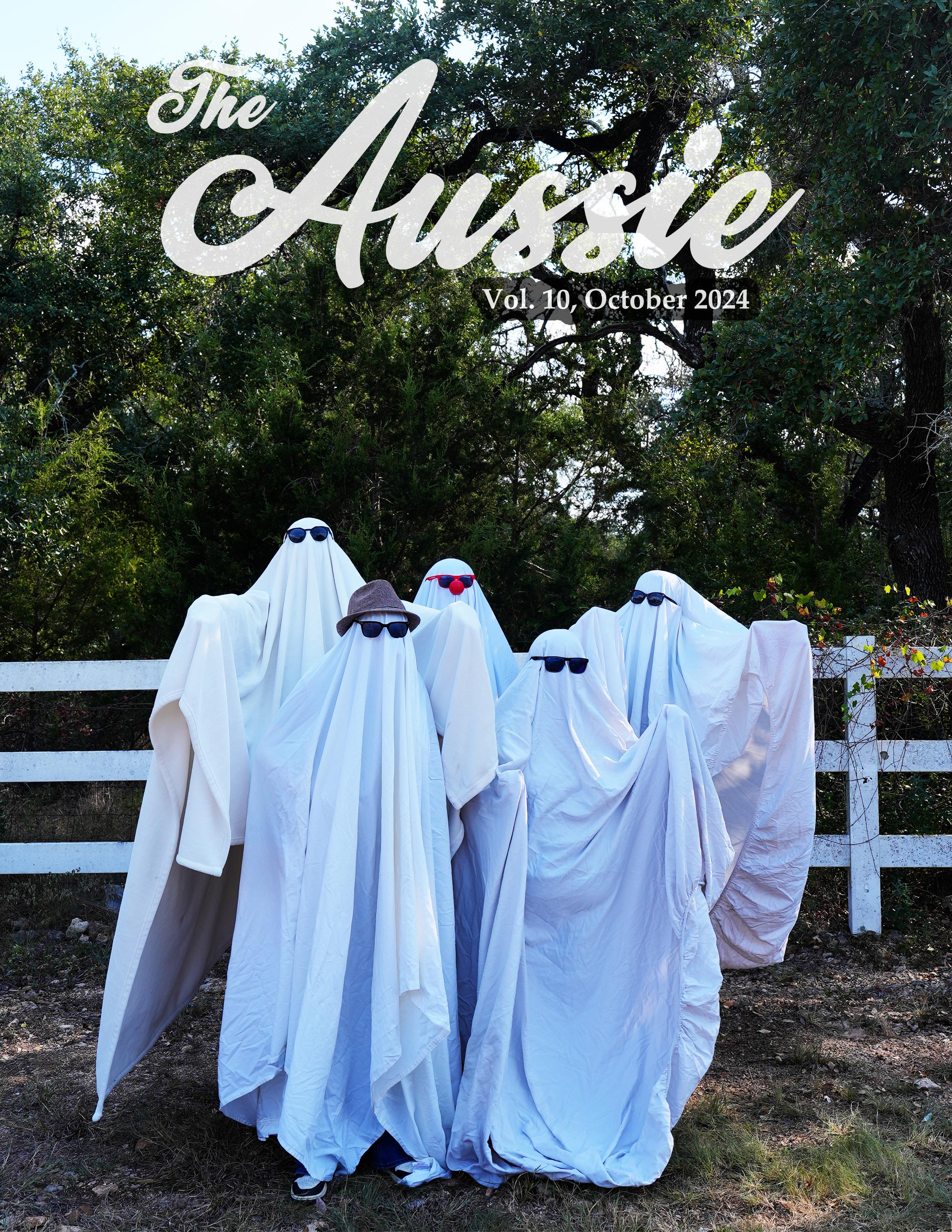

Masthead
EDITORS-IN-CHIEF
Riatta Fields & Kanik Wilton-Green
FEATURES EDITOR
Jack Yioutas
NEWS EDITOR
Amrith Chandra
FICTION & POETRY EDITOR
Kanik Wilton-Green
COLUMNISTS
Jack Yioutas
Gabe Valentin
Joe Miller
ARTS EDITOR
Katelyn Calderon
LAYOUT EDITOR
Riatta Fields
FACULTY ADVISOR
Graeme Mullen
EDITOR’S NOTE
Riatta Fields
Welcome to this edition of The Aussie! As you flip through these pages, I hope you find some inspiration, a good laugh, and a sense of community in our stories. This issue is all about celebrating our diverse voices and highlighting the cool talents and achievements of our fellow students.
Inside, you’ll find thought-provoking articles, creative artwork, and insights into school life that reflect our unique experiences. It’s not just about classes; it’s about the friendships we build, the challenges we tackle, and the vibrant culture that makes our school special.
A big shoutout to everyone who helped out with this issue, whether by writing, editing, or sharing ideas. Your passion and commitment really bring The Aussie to life.
So grab your favorite drink, find a comfy spot, and enjoy the read. I hope you connect with it as much as we have!
Cheers,
Riatta Fields Editor-in-Chief, The Aussie
HISTORIA LITTERATUM #10
JESUS HAS A LITTLE BROTHER. HIS NAME IS HONG XIUQUAN
Jack Yioutas
Failing a test made him realize that he was the son of God. He started a war that killed more people than World War One. He was a feminist who let women join his army and outlawed polygamy for his followers but had multiple wives himself. And he is still celebrated by some subcultures in China today.
Hong Xiuquan was born to a Hakka Han Chinese family on January 1, 1814, in Huadu, Guangdong, China. He wanted nothing more in life than to pass the imperial examinations and secure a well-paying job in the bureaucracy. The Imperial Exams were the main route to government service during the Qing dynasty (the exams only accepted the top 1% of all candidates who passed into the Imperial Service). Traditionally, success in Chinese society revolved around passing the imperial exams, which is one reason Asians outperform Westerners academically.
In 1843, after failing the Imperial Exams for the fourth time, Hong Xiuquan experienced a series of visions from God, in which he was appointed as the younger brother of Jesus Christ and given a mission to rid China of the corrupt Qing dynasty and establish a Heavenly Kingdom based on his interpretation of Christianity mixed with some indigenous Chinese beliefs.
Hong Xiuquan’s visions and messages from God and Jesus formed the basis of his religious beliefs and the ideology of the Taiping Heavenly Kingdom. According to his own accounts, Hong experienced a series of visions in which he received divine revelations, which shaped his religious convictions and inspired him to rebel against the Qing dynasty. The details of his visions are primarily known from his autobiography, The Story of How I Established the Heavenly Kingdom.
Hong Xiuquan was taken to heaven, where he met his dad, God, and his brother, Jesus Christ. God and Jesus told him that he was chosen by God to establish a Heavenly Kingdom on Earth. Hong believed that he was tasked with
eradicating the devil worshiping Qing dynasty, and restoring the true teachings of Christianity in China.
In his visions, Hong Xiuquan also received divine guidance on various religious and social doctrines that would form the foundation of the Taiping Heavenly Kingdom. These included beliefs such as the worship of one God, the abolition of Confucianism and ancestral worship, the promotion of communal property, strict moral codes that prohibited activities such as gambling, opium use, and prostitution, and the establishment of gender equality with men and women holding equal roles and responsibilities in society. As part of his push for gender equality, he banned foot binding and polygamy despite having multiple wives himself.
Hong Xiuquan’s visions and messages from God and Jesus were deeply personal and had a profound impact on his religious beliefs and the formation of his revolutionary ideology. These visions provided him with a sense of divine mandate and purpose, which he used to rally his followers and lead the Taiping Rebellion against the Qing dynasty.
Hong Xiuquan gained a following, and his movement grew rapidly, attracting disaffected peasants, laborers, and other marginalized groups who were discontent with the Qing dynasty’s rule. The Taiping Rebellion was characterized by its radical social and political agenda, including the promotion of communal property, gender equality, and strict moral codes. Hong proclaimed himself as the Heavenly King of the Taiping Heavenly Kingdom and led his followers in a violent uprising against the Qing dynasty. The Heavenly Kingdom ended up ruling over large portions of southern China (1850-1864).
Despite initial successes, including the capture of Nanjing in 1853 and the establishment of the Taiping capital there, the rebellion faced internal conflicts, external pressures from Qing forces, and challenges in governance. The Qing government also received some support from Western powers, including the French and British, who had superior firepower and military strategies during the Taiping Rebellion.
On 1st June 1864, Hong Xiuquan died, and the Taiping Rebellion eventually collapsed, resulting in the deaths of an estimated 20 million people, making it the third deadliest war in human history, killing more people than World War One. Despite its ultimate failure, the Taiping Rebellion had a significant impact on Chinese history, and its legacy is still debated by historians and scholars today.
The Mysterious Many Deaths of Jesus’s Brother
Hong Xiuquan died on 1st June 1864, in Nanjing, which was the capital of
the Taiping Heavenly Kingdom during the Taiping Rebellion. (Nanjing was renamed “Tianjing”, meaning ‘Heavenly Capital’ during Hong’s ascension to the throne, being considered the New Jerusalem). There are multiple accounts of his death, each one as likely as the next.
One account suggests that he died from complications related to his long-standing opium addiction, which he developed during his later years. It is said that Hong Xiuquan became addicted to opium as a way to cope with the stresses of leading a rebellion, governing a kingdom, and being a religious leader to hundreds of millions of people. Another theory is that he died from natural causes, food poisoning, or from injuries sustained during the ongoing conflict with Qing forces.
Alternatively, there are some accounts that suggest Hong Xiuquan may have been assassinated by his own followers. Some sources claim that there were internal power struggles and conflicts within the leadership of the Taiping Heavenly Kingdom and that Hong’s death may have been the result of a conspiracy by his own generals or followers who were dissatisfied with his leadership or sought to gain power for themselves. The exact circumstances of Hong’s death remain unclear and are the subject of ongoing historical research and speculation. However, it is generally agreed that he died in Nanjing, the capital of the Taiping Heavenly Kingdom, on 1 June 1864, marking the end of his leadership of the Taiping Rebellion.
Secrets of the Taiping Bible
In addition to being the son of God, Hong Xiuquan also wrote his own Bible. The “Taiping Bible” refers to a religious text called the “Xinjing” or The New Testament. The Xinjing is also known as the “Taiping Jing” or the “Holy Book of Great Peace.”
The Taiping Bible contains many references to the Bible’s Old Testament, including stories, characters, and teachings from the Pentateuch, such as the Ten Commandments, the story of Adam and Eve, and the great flood.
Hong Xiuquan claimed that all of the Taiping Bible was revealed to him by his dad, God, and his brother, Jesus, in his visions. The Xinjing served as the foundational scripture of the Taiping Heavenly Kingdom and was considered the authoritative text for the Taiping followers, offering Hong’s vision of a utopian society based on his interpretation of Christianity and Chinese cultural elements. It includes teachings on the worship of one God, the rejection of Confucianism and ancestral worship, the promotion of communal property, gender equality, and
strict moral codes. It also includes prophecies about the imminent fall of the Qing dynasty and the eventual establishment of the Taiping Heavenly Kingdom as the one true kingdom on Earth.
The Xinjing was written in a style that resembles the format of the Christian Bible, with chapters, verses, and sections. It incorporates Christian terminology and concepts, but also includes elements from traditional Chinese culture and Hong’s own revelations and visions. Hong’s translation and adaptation emphasized the wrath of God from the Old Testament who demanded worship and obedience, with little emphasis on the ideas of kindness, forgiveness, and redemption from the New Testament.
Legacy
Despite his actions leading to the deaths of 30 million people, Hong Xiuquan is not without his modern-day supporters. While many Chinese Christians blame him for Christianity’s inability to become the majority religion in China, others look back on him nostalgically, remembering a time when Chinese Christians had real political power. Many feminist scholars also admire him, seeing his commitment to gender equality as a stepping stone to Mao Zedong’s later feminist policies, which the CCP has continued to this day. Hong Xiuquan remains a symbol of both religious fervor and tragic revolution, a figure whose influence still resonates in certain circles and whose memory greatly influenced modern-day China.
NEXT ISSUE: Historia Literatum: The African Dictator who was Obsessed with Hitler and Ate People Alive + other stories
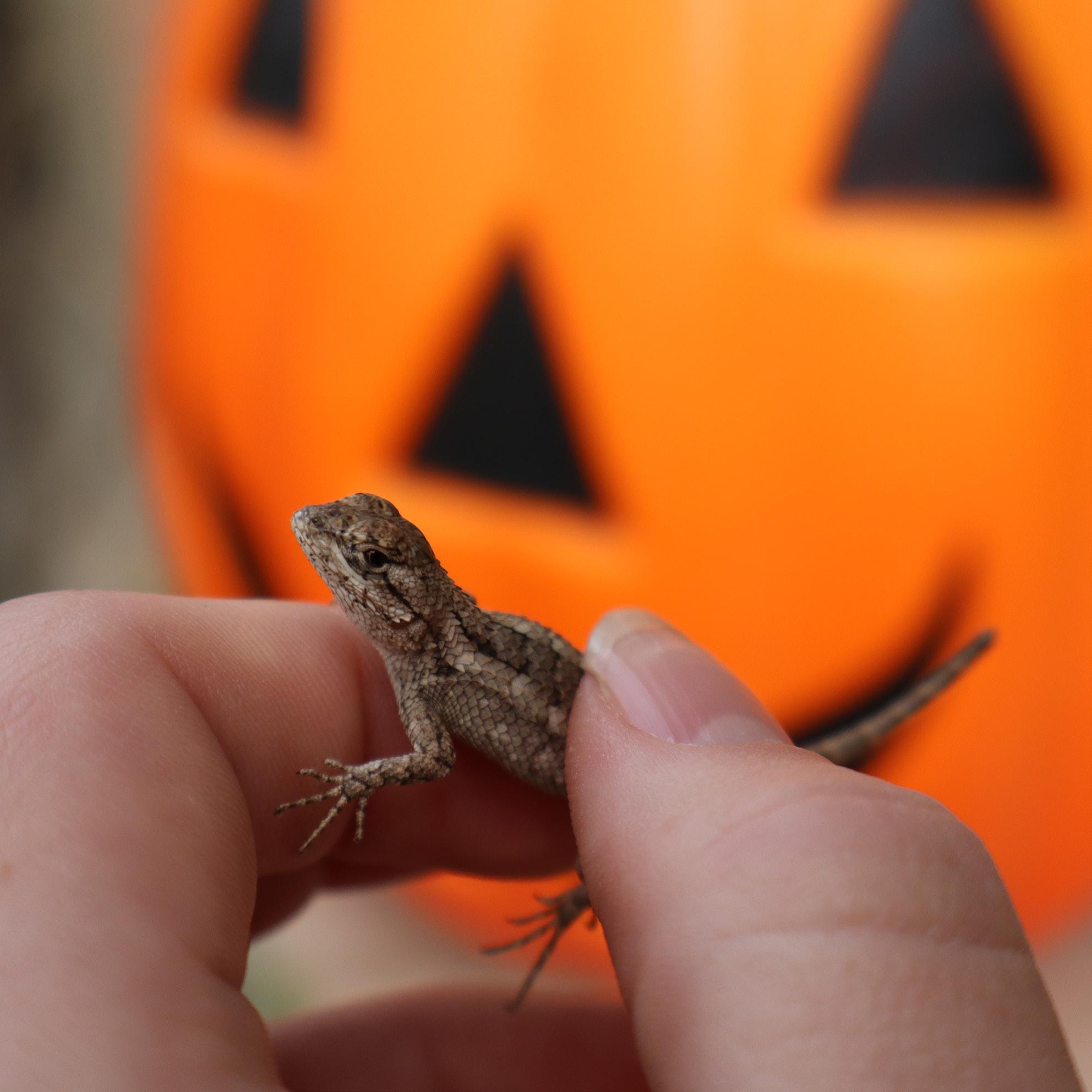
Photograph by Emily Schwartz
THE MYTH OF BALDR: THE AFTERMATH
Dylan MacDonald
The black void shatters as my eyes fall open, instantly consumed by a scene I do not comprehend. Above me, the indistinct shapes of rippling stalactites fill my view. I feel stuck, a surge of claustrophobia consuming me to the core. I try lifting my head, but my movements are restrained and slowed by the tar-like substance that suspends me. The difficulty in movement adds to my fears of this tight enclosure, and I squirm harder.
“The struggle slows the transformation, Baldr. Sinking will be rendered nearly impossible.” an eerie voice whispers melodically.
“What?” I screech, but no sound penetrates this spinning liquid. However, despite my lack of tone, the voice infiltrates my mind once again.
“This is Hel, your new mother and captor.” The goddess of the underworld whispers, taunting me, pushing all the wrong buttons.
“Still yourself, Baldr, still yourself. If you cannot obey, I shall eject you into Ginnungagap, the void of creation, where you will fall for the rest of eternity. This is, of course,” she giggles mirthlessly, “until you get liberated by Ragnarök, the war that will end it all.”
I scowled. Having once been the god of light and good looks, I have never gotten along with Hel, my polar opposite.
I hate taking orders from her, but I have no doubt, especially as she is Loki’s daughter, that she will not hesitate to throw me into the abyss. I steel myself and immobilize, instantly starting to sink. The shifting ceiling above moves farther and farther away, and the stalactites get smaller. Suddenly, I feel a cool breeze on my backside, almost like somebody trapped in a bubble of air in these murky depths. My body continues descending into the colder climate, the biting tem-
perature making me shiver. Only when my entire torso trespasses into the cold do I feel the change in gravity. Before, I was slowly sinking into the paste, but now I feel like something is forcefully pulling me down. The descent quickens, and my head breaks free. I slowly turn to face what lies below. Suddenly, fear grabs my lungs, twisting them tight and blocking my worried oxygen from flowing. A ravenous cavern extends downward for about 500 feet, and its insatiable fangs will inevitably devour me. I let out a pathetic whimper. I have never been the brave type. I shift my gaze and glance back up, realizing the liquid is like a cocoon. Mine, however, is not the only one. Where my cocoon sits attached to the wall, thousands of others lay scattered. My hands are now the only thing keeping me suspended over the void. The weight of my body and gravity combined are far too heavy for the tar to hold, and my hands pop free, leaving me falling and screaming towards the rocky terrain hundreds of feet below.
A barren wasteland. A sandy shore that leads to a dried ocean. A forest of leafless trees. I stumble forward, my feet pattering on the hard earth. A dead vine twists and twirls unseen on the ground, and my foot latches on, sending me sprawling to the floor below. My hand lands on a miscellaneous sharp stone, and a fiery pain lurches up my arm. I sit up, clutching the injured hand—a streak of red runs along my palm, streams of blood pooling. A drop races over and down my wrist, falling to the dirt where I sit. Suddenly, the drop on the ground hallows downward, transforming into a hole. It begins opening, wider and wider. I scramble upward and away, but the hole is too fast and swallows me. I land in a hard, uncomfortable chair, Odin sitting to my left, Frigg sitting to my right, their faces both scrunched with worry.
“The dream foretells his death!” a god whispers from the audience. A murmur of fearful and depressed agreement rings through the feasting chamber. I glance to the corner where Loki sits quietly for the first time in his life, a slight smile creasing his handsome face. The scene shifts, but Loki remains in the forefront of my view, gently guiding the blind Hod’s hand in an ark as he throws the mistletoe arrow straight at my heart.
I wake with a start, lying face up in a chamber, gazing up at the cocoons above. I’m breathless and soaked in the lingering cocoon’s goo and fearful sweat. Loki’s smile plays in my head on repeat. A cold wind lazily rocks through the cavern, finally waking me to the fact that I am wearing nothing. I pick myself up and
look around the cavern. There is a small lake of clear, fresh-looking water. I have a sudden, unassuageable urge to jump into it, to clean myself. I creep to the edge and peer down into it. My face stares back at me, and a visceral reaction causes me to recoil. My face no longer adorns my handsome, well-muscled jaw and beautiful, plump lips. Now, I appear hollow, a mere skeleton with thin layers of skin tightly contouring the bones. The same is true for my arms and legs. They look thin and brittle, as if they could crumble at any second. I tumble downward, humiliation taking over. It is embarrassing enough that an “immortal” would fall at the hands of something as simple as mistletoe, but it is quite another to get stripped of everything that makes you, you. My once-defined abs have been vacuumed in, now clearly defining each rib. I weep, letting myself bask in the grief. I crawl forward, approaching the water, hoping that I can drown when I am already dead. I fall in. The water surges around me, and I suck in breaths of water to prompt suffocation, but the liquid seems to turn to oxygen in my lungs. Thoroughly swamped with depression, I paddle half-heartedly to the edge of the water and pull myself out, now free of the sticky substance from before. The cold intensifies as I am drenched in even cooler water and wish for clothing. A loin cloth appears before me as soon as the thought trespasses my mind. I stumble over, annoyed that the sparse fabric wouldn’t warm me well. Despite the grievance, I tie it around my waist, the fabric falling over my knees.
“What do I do now?” I wonder, finally succumbing to the game that Hel is playing. I glance around again and, for the first time, notice a crack in the wall large enough to fit through. I walk wearily over, unsure whether to fear the gap. I glance through the opening and get presented with a neatly furnished room, each item crafted with something that looks suspiciously like bone. Sitting in the middle is the profile of a pretty woman, her skin pale as a cloud’s fluff, accentuated with a bright, blood-red lip. Hel turned, unveiling the other half of her face to me, a haggard, misshapen, scabbed lump, her eye leaking green goo. I cringe; the fact that she is a half-rotting corpse has never truly settled in with me.
“Welcome to Helheim, Baldr,” she said in the same sweet voice from before. “I truly hope you enjoy your time here.”
“This is wrong! It isn’t fair.” I burst out, tears streaking down my face. I was the favorite. I worked hard to bring light to everyone! Touch everyone! The betrayal of Loki. His manipulation of my beloved twin brother, Hod. Hod’s murdering me. It was all getting to be too much. “I deserve the life that got stripped away
from me.”
“It’s not a question of deserving. Death is not just. It is not fair. It tears love down the center, rips families apart, and causes war. No. Death isn’t fair. But. . .” she begins softly. “Odin, Frigg, and I have an agreement. The world suffers greatly when a god disappears. An imbalance, one might say. So, in exchange for several unimportant mortal lives, you shall be set free.”
“Really?” I gasp in disbelief.
“Yes! On one condition. All beings in nature must weep for your loss.” she smirks.
“Why would you make that the condition?” I asked, perplexed.
“Because not everything is about you, my simple-minded companion. All life is interconnected, and revival is not an isolated event, but impacts all creatures that share this plane of existence.” She says, giggling.
Confidence leaps within me. All people who have beheld me have experienced some enlightenment, so I am thus deserving of their tears.
“How can you gauge if every creature has shed a tear?” I ask, curiosity blossoming. She stands, limping on her rotten husk of a leg to a shadow-shrouded corner of the room. She bends down and clutches something with her good hand, heaving it up. She stumbles back, holding a large yet simple-looking clay bowl filled about halfway with water.
“If every creature in all nine worlds sheds tears, one of them will land in this basin. If the water makes it to the rim, it signifies that each living being has wept. I will give it another week before giving the verdict.” She said condescendingly. “Enjoy your new room!”
She vanishes into a black vapor that swirls for a second, then evaporates completely. I reel to face the crack from which I entered, but it vanished. I am trapped, and everyone’s tears combined are my ticket out.
A slight smile creasing his handsome face. . . Leafless trees. . . Growing hole. . . Worried Faces. . . Guiding his hand. . . Blind. . . Half a corpse. . . Screams!
“Ahhhhhhhhhhh!” I wake up on the floor, curled in a tight protective ball. Tears stream down my face, and streaks of water leave my fear and sadness printed on my face. The bowl has filled nearly to the brim over the past week but still requires another millimeter of water to reach the rim. Another two or three tears is all it will take for it to achieve fullness. I have an hour until Hel returns to give
me freedom or take me to join the rest of Helheim. I stare at the bowl, focused and intent. A droplet of water forms above the boul, sloshing downward and hitting the water’s surface with a gentle thud. The water sloshes upward, the level rising toward the rim. I cradled my head in my hands, unable to get the image of Hod launching the arrow toward me out of my head.
I have lost my sanity stuck in this dimly lit cell for an entire week, and I want her to give the verdict. I hear another drop fall, and I look up. One more, that’s all I need. It almost looked as if it were full now. It was missing one-hundredth of a millimeter from the water aligning itself with the rim. All of a sudden, a screeching noise fills my ears, my mind registering just pain, for I wasn’t used to sounds other than the ones that my thoughts generated in my head. I wheel around to stare at the wall behind me, the opening having reappeared. Hel’s striking visage glares at me in defiance on the other side of the door. She steps one foot through the crack, then the other. She surveys the bowl, stepping closer and closer to it. Suddenly, an unsettling smile arches over her face.
“Looks like I got a new pet.” she cackles, and I break.
“You’re early!” I rage.
“Early bird gets the worm!” she sings in her sweetest voice. “And I certainly got a worm this time.”
She traces her hand over my chest, and I collapse, sobbing. I am a hideous mess. I lost everything, and I have no hope of ever getting it back.
“Who didn’t cry for me?” I whisper, my voice cracking into despair.
“A brilliant Giant. Her name is Thökk, allegedly. Loki knows her well. You could almost use their names interchangeably.” She squeals like a piglet with mirth and claps her hands together. The hole from my dreams instantly became a reality at the sound of her clap. The opening gets wider and wider until I get swallowed and digested, abandoned in a barren wasteland with a sandy shore that leads to a dried ocean, highlighted by a forest of leafless trees.
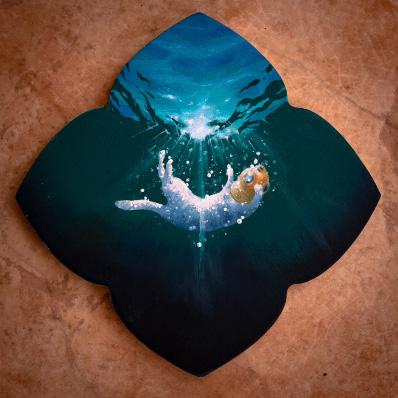
Artwork by Zadok Bendandi
GABE’S TOP FIVE HORROR PICKS
Gabe Valentin
When it comes to horror, I am quite the fanatic. I’ve watched and played all sorts of horror-related media, and these are my top 5 recommendations for Halloween. These will all be spoiler-free, so without further ado, in no particular order: Gabe’s top 5 spooky picks for this halloween.
Classic Movie: Scream
Scare rating: 8/10
Entertainment rating: 10/10
Scream is a movie about a stalker/serial killer who terrorizes the small town of Woodsboro, California. We follow our main protagonist, Sidney Prescot, as she navigates life in a town under duress by the Ghostface Killer. The movie keeps you guessing at every turn, trying to figure out who the killer is before our protagonist falls victim. Scream is a fantastic movie. It’s self-aware without getting too meta, the action and setup are proportionate, and the pacing of the movie is fantastic. As the movie goes on, Ghostface goes from a lurking threat to an ambush predator, becoming more and more confident as they rack up the kill count. Upon my first viewing of the movie, the twist at the end caught me completely off guard, and it was a great payoff for a great movie. It was 9/10, and it was hard to beat the classics.
Recent Movie: A Quiet Place: Day One
Scare factor: 7/10
Entertainment rating: 6/10
The ambitious prequel to A Quiet Place: 1&2, this movie seeks to explain what happened at the beginning of the monster invasion. The main idea of the movie is
one day, without warning, giant semi-invulnerable monsters came from meteors and peppered the earth with hundreds of blind monsters. The only reason humanity was able to survive was because of the fact that the aliens relied solely on sound to find prey. This leads to lots of very tense moments when the monster will be right next to our protagonists, and you will find yourself holding your breath, completely still, as if you were right there with them. I really enjoyed the first movie and found that the second movie did justice to the series. Because of this, I was quite apprehensive that this movie would flop and ruin a fantastic set of movies. To my relief, it was another serviceable installment in the franchise. Watching this movie was thrilling in some parts, boring in others, and most importantly, absolutely chock-full of atmosphere. Watching the protagonists walk through a city that we see at the beginning, bustling with life, suddenly turned into a ghost town brings forth an emotion that I struggle to describe. I can only describe it as an uncanny unease mixed with a longing for what once was. This movie did not surpass its predecessors, but it wasn’t too far behind. 7/10, above average for sure.
PG-13 Pick: Paranorman
Scare factor: 4/10
Entertainment factor: 8/10
This movie has a special place in my heart, as it was the first real “Scary Movie” I ever watched. Paranorman is a young boy who lives his life like any other kid would. Get up, brush your teeth, watch cartoons, and go to school. The only thing that sets him apart from normal kids is he is a median. He has bridged the gap between the spirit world, and the real world, and is able to talk to ghosts. He normally will try to help the ghosts with whatever it is that is keeping them tied down to earth so that they can go and rest in peace. His normal activities are interrupted; however, once he discovers a century-old curse in the town, With the help of the ghosts and his real friends, he must go on an adventure to save the town from the curse a vengeful witch cast upon the town many years ago. The animation style is unique, cartoonishly gloomy, and smooth. The lighting is well utilized, and the humor is simple and silly. It isn’t really scary, as the movie is going for a more lighthearted aesthetic, but it is still very entertaining.
Horror Game: Little Nightmares
Scare Rating: 7/10
Entertainment Rating: 10/10
I am absolutely in love with this game franchise and would love to talk about both Little Nightmares One and Two, but I think I ought to just stick to one for now. This game trades in cheap jump scares in order to absolutely crank the atmosphere to its maximum. The game opens with your character, an unnamed girl in a yellow raincoat, awakening in a suitcase. Now, reading that sentence may leave some of you confused, and that’s because the little girl is disproportionately small to the world around her. Your character is barely as tall as storm lanterns, needs two hands to pick up a key just as big as her, and can crouch through air vents that are only a few inches smaller than she is. You are a lost child who awakes in a strange place and only has one path to go: Forward. Working your way through the metal labyrinth that you are trapped in, you encounter twisted and distorted monsters reminiscent of the adults you may have once known. They tower over you in height, weight, and stature. With no way to fight back, you must run, jump, and skulk your way to safety as these malicious monsters hunt you relentlessly. Usually, I hate stealth games, as I don’t like having options stripped away from me when I play games, but this one does it perfectly. As you delve deeper into the Maw, you discover an underlying theme of hunger. You run into monstrous chefs and evade starving dinner guests who are ready to swallow you whole. The whole time you are being run down by these twisted figures, the dark and gritty environment sets up an amazing and robust atmosphere. From the cramped vents in the early game to the open dining halls in the late game, the atmosphere and music never feel out of place. I could gush about this game all day, but I’ve already said all I can without spoiling key gameplay elements and story beats, so hopefully, my final rating will make my love for this game justice. 10/10, A forgotten classic in the making.
Short Film: Portrait of God
Scare rating: 10/10
Entertainment rating: 8/10
This YouTube short film is one of my favorites. It only takes seven minutes and 30 seconds to run, and it’s one of the very few that really gets under my skin. The idea behind this movie is a college student is practicing her presentation late at night about a painting aptly named “Portrait of God.” Nothing is known about the painting, and to most, it just looks like a black canvas with nothing painted on it.
To some, however, they describe a figure in the darkness. Every person out of the few who can see the figure describes it the same: He has piercing white eyes and a horrifying grin, like the corners of his mouth had been stretched out. At first, our protagonist doesn’t see anything at all. But as she practices, she starts to see something in the darkness. The foreshadowing is fantastic, the setting is relatable, and the idea is horrifying. To go from not seeing anything and feeling confident in your safety to seeing exactly what the people described while completely alone at night is a scary concept. Combine that with my irrational fear of the uncanny monsters that mimic humans/look human, and you have one of the most horrifying media experiences I’ve ever had. There are no cheap jumpscares, just the pure, unadulterated terror of the fantastic music and sound design mixed with the absolutely fantastic acting of the protagonist. For a short film on a budget, this has made one of the most developmental changes to my understanding of horror since I watched Alien and Scream with my dad. This film scores a final rating of 10/10, and it is truly an underground masterpiece.
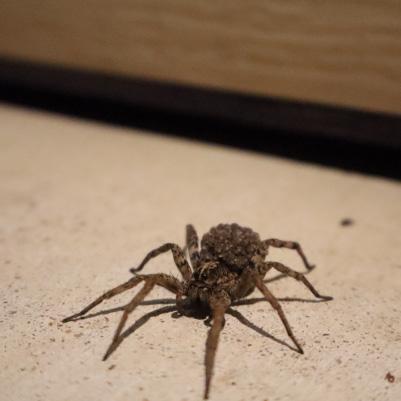
Photograph by Emily Schwartz
IMMORTAL HISTORY: ABOUT THE STARS
Mattie O'Brien
“Once,” the god intones, “there were three lovers. A soldier, a bard, and a merchant. Each loved the other equally, and love was all they had, for they lived on whatever their merchant could sell or what coins their bard could sing for. And they were content, for they had each other.”
As it spoke, the god’s arm pointed upwards towards the stars, tracing their outlines with a practiced hand. You could almost imagine seeing the three there, hiding away in the cosmos. Perhaps it was just the ashes of your fire.
“Still, the bard was not fully content. They wanted their partners to be comfortable, to live without the fear of starving or freezing to death. For weeks, they toiled, working on a melody to speak to the universe. When it was done, they went to the bank of the nearest river, and they sang a song so beautiful that the river itself wept gold, and with that gold, they brought food and firewood and a home cozy enough for the three of them.”
“But still, they were not content. They feared that the merchant still had debts that would soon call, that those debts would force the merchant far away until they were paid. So once more, the bards locked themselves away to write another melody. When it was done, three summers had come and gone. Their lovers, having waited for them each and every day, were overjoyed to see them again, but they had a job to do. They went to the city center and sang so sweetly that the cobblestone under their feet shifted and revealed to them enough precious ore to pay off each and every one of the merchant’s debts.”
“But still, they were not content. They feared that the soldiers would one day be called once again to war and that they would lose them. So this time, the bard kissed their lovers goodbye, and went to walk the world, singing all the while a
song of peace and harmony, hoping to forever end conflict. They sang so long that their throat and fingers bled, a path of crimson throughout the world. It was years before their song was heard across the world, but they did it, and once they had, they returned to their cottage and to their lovers because the land was at peace.”
“But to their horror, they found the cottage empty, the hearth cold, and two lone graves in the garden. For they had been gone so long that their lovers had each died from heartbreak, believing their partner would never return. They no longer had a voice, so they could not sing them to life, and their fingers were worn to the bone, so they could no longer play. Instead, they wept for their lovers and for the time that they had wasted on fearing what may have come to pass.”
“Bring them back,” The bard begged, “For it is not life without them.”
“We cannot,” The river replied.
“I will sing you a song so beautiful that it will be remembered forevermore if only you return them to me.”
“We cannot,” The cobblestone replied.
“I will give you my talent, my ability to play and to sing if only you would return them to me.”
“We cannot,” The world replied.
“Then I will give myself so that they have a chance of life without my selfishness if only you would return them to me.”
“We cannot raise the dead, no more than you can sing them back to life,” the gods told the bard, “But you have sung so sweetly and played with the grace of the gods themselves. Your river of gold fed thousands, and the debts you paid relieved many more. The wars you stopped saved so many with your songs of peace. Take happiness in this.”
“It was for them. I would give it all back if only you would return them to me.”
The gods paused. The world, for a brief moment, stayed as still as stone.
“We cannot raise the dead,” The universe told the bard, “But we can return them to you. Do you accept this?”
“The bard no longer had a voice and could only nod. In a breath, they were turned into stardust, and now they sing forever amongst the stars, reunited with their lovers for all eternity.”

Photograph by Kendall Bennett
WHAT DO YOU WANT TO DO?
Cole Soutas
What do you want to do when you grow up? For some, the answer is clear, but for most, it is not the right question. There are thousands of jobs out there that people know nothing about. Even the many kids who say they want to be vets, firefighters, or dancers likely know little about their dream jobs.
This summer, I traveled to Maryland to see my grandparents. While I was there, we went to a Navy base museum where there was a tour guide named Jerry. We learned a lot of exciting things about him during our visit, but Jerry’s old job as a wing stability engineer was the most fascinating. Jokingly, we asked Jerry if he knew he wanted to specialize in the physics of airplane wings when he was a kid. Jerry obviously said no, but he always knew he wanted to be an engineer because he loved to put things together and take them apart. Learning about Jerry’s job made me wonder how people land in their careers.
I decided to interview my family friend, Dr. Taia Lubitz, the Managing Director at Manchaca Village Veterinary Care. While talking to me, she told me that her job is not as straightforward as one may think. Here is some of our conversation:
Did you know early on that you wanted to be a vet?
I have known since I was a little kid that I wanted to be a veterinarian. . . At that time, I thought that I just loved animals so much that I would like to take care of them. Later, I learned that that’s not the total of what a vet does. It is husbandry, but it’s also medical.
Do you enjoy your job? And what parts?
Yes, I enjoy my job. It’s nice because I don’t do the same thing every day. I get to do lots of different things. . . so dentistry, surgery, as well as just wellness, and then just minor illnesses like ear infections and skin allergies, and I get to interact with people, which for the most part is nice.
What don’t you like about your job?
I don’t like that care costs money, and so sometimes we have to modify the level of care depending on what resources people have. Also, seeing animal cruelty is very hard... And then, when people are sad about their pets being sick or having to euthanize their pets, that’s very hard.
What is the best thing that has happened in your job?
It’s a cool thing, right, that we can learn and then do? It’s highly skilled stuff. So the thing about human medicine: you go to one doctor to get your teeth done, to look at your eyes, for an ear infection, to get surgery? All of those are different specialties. But I get to do all of those things, and I get to do them on a regular basis. So, for example, I get to extract teeth, and take X-rays of teeth and evaluate the teeth.
What if you don’t know how to do something? How do you figure it out?
I phone a friend; so I talk to an expert. Say it’s a surgery that I have never done before: I talk to a surgeon because there are board-certified veterinary surgeons. I will watch a YouTube video. That sounds bad; don’t put that in there! But [laughing] that’s what I do for real. . . But anyway, I will send a video to a surgeon that I know and trust and like and say, “Is this a good video to watch for this surgery?” and she’ll say, “I love that guy; he’s great, and yes I like that except for this part,” or “I like the whole thing. . .”
What is the most challenging or worst thing about your job?
The worst thing is when I can’t fix something. That feels pretty bad.
Was there a memorable moment when something happened?
Yeah, this dog had eaten some kind of cloth, like a blanket or shirt, and at the time, they didn’t want to do the x-rays, and maybe a week later, came back for the x-rays, this was my first year out, and it was definitely obstructed, and surgery was indicated. . . I had to take out a ton of the gut, and it didn’t heal properly, and
the dog ended up dying. Can you imagine that the gut was stuck for over a week? It wasn’t my fault, but it felt bad. . . It’s sad when it’s a young animal, and people don’t take the recommendations I give. The money thing is really hard. If people don’t have money, or enough money, or don’t prioritize, and so, even if it’s a fixable problem, they euthanize animals. That’s hard. Because it’s like, I could fix this, but I can’t fix it for free.
What would you tell someone thinking about becoming a vet?
That they should get as much experience in the veterinarian world as they can with both large animals and small animals. Because that experience is worth more than even how good their grades are, which also need to be good, people have an idea of what a vet is; I did when I was a kid. And it’s not exactly that. You know you think you’re going to only be taking care of animals, but really, you have to take care of people too.
How has your job experience changed or evolved over the years?
Well, I used to be what’s called an Associate, so I just went to work and did my work and didn’t manage anybody, and now I am in a management position where I do more leadership stuff. Here’s a lesson in saying, “I don’t know.” So, one of the things I said at our staff meeting is to explain that “Hey, we don’t know everything.” I used to be so scared when I got out of vet school to tell a client that “I don’t know. . .” and now I find it’s a little empowering because I can say, “I don’t know what’s going on with your pet, but this is what we can do to find out.” Or say, “I have never seen that before; I need to call a specialist.” So, it is very liberating, and my job has changed over time, and I feel more comfortable in saying, “I don’t know.” Right, that’s important. You have to tack on the “But I want to find out for you” or “I am going to do some research” or whatever. I think it is useful to be able to say “I don’t know” and people don’t mind.
What would you say to students thinking about their career path?
My undergraduate degree was not a science degree. So I changed. For a number of years, I thought I wanted to help people, and I did other stuff. . . In high school, [I volunteered. . .] at a human hospital; I should have volunteered at a vet hospital and cleaned kennels and things like that. So, I didn’t start that [work] until after I graduated college. I worked at an organic nursery, and then [years later] I worked
at a veterinary hospital and I started out as a receptionist in the front. When I got hired, she said, “Listen, this is the job I need. Over time, you can move.” And actually, that is not a bad deal because I can say truthfully that “I have done your job.” (And that’s the worst job in the clinic.) I worked as a kennel assistant, like cleaning kennels. At the same time I was working at the vet hospital, I was taking science classes at the university, and then I moved to veterinarian technician, like a nurse. . ., and then I applied to vet school and I did not get in. I applied to the three schools that I had the best chance at [based on] the states my parents each lived in. . . Instead of going back to the drawing board and reapplying in the U.S., I applied out of the country and went to a veterinary school in Granada because I was older. . . So my new grads [at my clinic] went immediately into vet school and graduated when they were 26. I wasn’t even starting. . . until I was 28; [six years] behind other people. I felt a little sheepish about being older than most of the other students at my vet school. . . 22 to 28 is a jump. But I got to do a lot of interesting cool things, and I know about plants because I worked with plants. . . and I worked at a lot of different places. . . and I know about a lot of other things because I took an interesting and circuitous route. . . So yeah, I was 35 when I started working as a doctor of veterinary medicine.
While I am not pursuing a career as a vet, Dr. Taia has a lot of intriguing ideas. One of the most fascinating things she mentioned was that saying, “I don’t know, is okay;” this can be applied to more than just being a vet and is an excellent lesson for life in general. I have learned much more about what it means to be a vet and what it takes to become one. Although this interview did not change my mind about whether I want to pursue veterinary care, it taught me that whatever career I choose, I should take the time and effort to learn what it means to be in that industry and to think about whether that day to day work would suit me. Dr. Taia may not have taken the most efficient route to begin her career, but she was more mature and prepared when she finally got there than her peers. While she achieved her goal of becoming an expert medical practitioner, she was rewarded more for the difficult self-discovery of not knowing exactly what career she ultimately would choose. Dr. Taia has been practicing for almost ten years and has become a leader because she has many life experiences working with people in different circumstances. I would worry less if all my life goals were planned, but maybe not having it all figured out is not so bad.
Artwork by Katelyn Calderon
OUTFIT OF THE ISSUE: CHLOFIA
Joe Miller

Fabulous outfits may not be an everyday sight, but the occasions someone wears something cool are very eye-catching. Two people that stood out to me were Chloe and Sofia. With their contrasting styles, they are one of the coolest duos at school.
It is common to see Sofia in dark colors, with a DIY grunge vibe as the cherry on top. Graphic tees with the collar cut out and her cherry red Docs are usually the most memorable out of all her looks. What I believe ties it all together are her layered necklaces.
Chloe mainly rocks white and pink outfits with a clean, simple vibe to perfectly complete the look. Chloe’s most memorable looks are her monochromatic looks from head-to-toe, sporty but formal jackets, and elegant mini dresses. Her outfits are a perfect balance of simple and dressy. The best part about these two is how they contrast together perfectly!

Artwork by Katelyn Calderon
STUDENT GOVERNMENT QUOTES
Amrith Chandra

As the new school year starts, a new year of student government elections is at hand. After an inspiring campaign season, our students have chosen their representatives who will lead and advocate for our school community. Here’s a look at our newly elected officers and their visions for the year ahead.
Student Body President and Junior President Kanik Wilton-Green (Junior):
“This year, I hope to continue upholding the values of AESA and keep our community safe and welcoming.”
Student Body Vice President Slaten Fields (Senior):
“I want more chaotic fun.”
Student Body Treasurer Jack Yioutas (Senior):
"I shall fulfill my campaign promise to steal from educational institutions in opposition to us, 'the opps,' with the utmost indefatigability for the greater prosperity of AESA Preparatory Academy.”
Senior President Darby Chalfant:
"I am excited to help bring ideas to the table and get them in motion!"
Senior Vice President Bob Miller:
“I plan to bridge the student body and the government. I want to hear all your concerns, including how much you hate homework.”
Junior Vice President Adva Hurwitz:
“I hope to make this school year memorable and fun!”
Sophomore President Dylan MacDonald:
“Hello everyone! As the sophomore president, I am committed to listening to your ideas and working together to make this school year memorable. Let’s create a fun and supportive environment where everyone feels heard and valued. I am looking forward to making a positive impact with all of you.”
Freshman President Gideon Williams:
“I will watch Theo take notes and eat lunch during the meeting.”
Freshman Vice President Cole Soutas:
"I will be vice president."
Freshman Historian Thomas Ketcchbaw:
“I will make sure Gideon watches Theo, takes notes, and eats lunch.”
Freshman Secretary Theo Eriksson:
“I will take notes and eat lunch during the meetings.”
With this passionate team in place, we’re looking forward to an exciting year ahead filled with initiatives that enhance our school spirit, improve communication, and create lasting memories. Congratulations to all our elected leaders! We can’t wait to see how you will shape our school’s future.

Photograph by Emily Schwartz
MULLEN'S MURDER
Kanik Wilton-Green
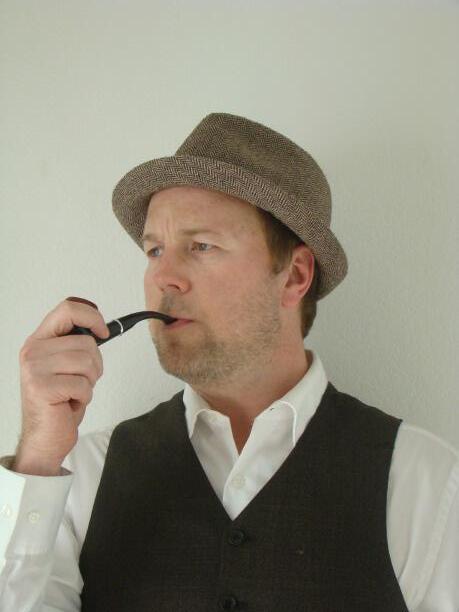
MR. MULLEN
Graeme Mullen, the head of the well-known newspaper the Aussie, was found dead in his mansion. The police suspect foul play. It’s up to you to discover the truth behind Mullen’s murder.
THE SUSPECTS


Fiancees Kanik and Riatta are editors for the Aussie. They have been seen together on romantic dates, although what they appear to be discussing may not be as romantic as they want you to believe…

Amrith is Mullen’s son, although after Amrith’s engagement to the daughter of a rival newspaper magnate, their relationship seems to be quite strained…
RIATTA
KANIK
AMRITH

Jack and Mullen served together in the war in Albania. Jack won a medal for an act of valor, although the only witness to this act was Mullen. . .
Gabe-riella immigrated to the United States after her husband was killed in the Albanian war. She has worked as Mullen’s housemaid for several years, but she seems to harbor some resentment for him. . .

JACK
GABE-RIELLA
THE POLICE REPORT
Mullen’s body was discovered in the evening by Gabe-riella. The autopsy indicates he had been deceased for several hours prior to Gabe-riella’s discovery. The cause of death on the autopsy report was written as loss of blood due to a gunshot from a Beretta M9, the official military sidearm, although Gabe-riella claimed that she had been at the mansion all day and she hadn’t let anyone in. She also claims that she hadn’t heard the gunshot over the sound of her vacuuming. Officers on the scene claimed that there was a chemical orange scent.
An email to Riatta and Kanik was discovered on Mullen’s laptop. The following is an excerpt from it:
You two have been sending me unfinished, sloppy pieces that you claim have been edited. I’m not going to pick up your slack any more. If you don’t start doing your job, you two are out of a job.
On his laptop, there was also a quarterly report showing that sales for the Aussie have been down by 20%, and that they’ve been losing circulation due to their competitors.
On Mullen’s desk, an unfinished letter addressed to Amrith was found:
Amrith,
You’ve disappointed me yet again. I’m displeased to hear about your engagement. For the sake of your future, I suggest you call things off with your fiancee, unless you’re happy with receiving no inheritance.
Jack claims he was in town to visit with Mullen, and was still unpacking his bag at his hotel at the time of the murder. Gabe-riella claims she was vacuuming the living room at the time of the murder. Amrith claims he was at an appointment with his tailor to pick out his wedding suit at the time of the murder. Kanik and Riatta claim they were on a date at the time of the murder.
But who actually killed Mr. Mullen? Tune in next issue for more clues!
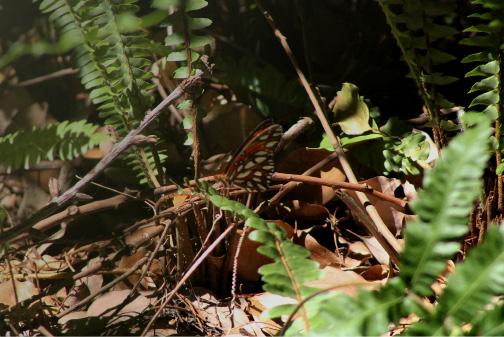
Photograph by Kendall Bennett
See you next issue...
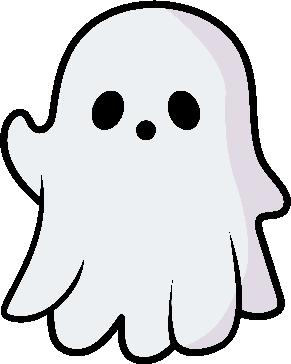
Don’t forget to submit!
